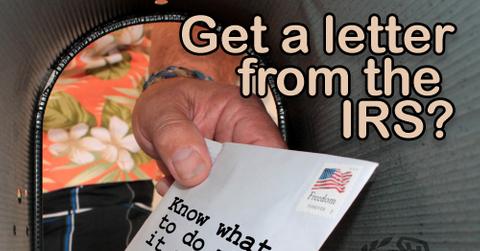What Does It Mean When You Receive IRS Notice 1450?
As the federal agency responsible for collecting taxes, the IRS has to send out many notices. What's the meaning of IRS notice 1450?
March 3 2023, Updated 10:39 a.m. ET

Throughout the year, you might receive multiple notices from the IRS. While some may be general correspondence notifying you of upcoming changes, others might center around more pressing issues like unpaid taxes. But what about IRS notice 1450? What does it mean?
According to Greed-Head, IRS notice 1450 “is used by courts to establish priority, as in bankruptcy proceedings or sales of real estate.”
IRS notice 1450, Request for Release of Federal Tax Lien, explains when a Certificate of Release of Federal Tax Lien — IRS Form 668(Z) — may be issued and the required content of the request. As per the IRS, a federal tax lien is the government’s legal claim against your property when you neglect or fail to pay a tax debt. This lien then protects the government’s interest in all your property, including real estate, personal property, and financial assets.
Keep reading for more details on what it means when you receive IRS notice 1450.
You received IRS notice 1450 — now what?

If the IRS imposed a lien against your property, IRS notice 1450 should outline the steps necessary to get it released. A federal tax lien exists after the IRS:
- Puts your balance due on the books
- Sends you a bill that explains how much you owe
- You neglect or refuse to fully pay debt on time
After this, the IRS files a public document, Notice of Federal Tax Lien, to alert creditors that the government has a legal right to your property.
This lien attaches to all of your assets and to future assets acquired during the duration of the lien. It also impacts your ability to get credit. Under Section 6502 of the Internal Revenue Code (IRC), IRS tax lien attachment lasts for a minimum of 10 years.
How can you get rid of the tax lien?
One of the most straightforward ways to get rid of a tax lien is to pay your tax debt in full. The IRS releases your lien within 30 days after you’ve paid the tax debt. Other ways to reduce the impact of a lien are:
- Discharge of property (several Internal Revenue Code provisions determine eligibility for the discharge).
- Subordination, which doesn’t remove the lien but allows other creditors to move ahead of the IRS. This can make it easier to get a loan or mortgage.
- Withdrawal removes the public notice of a federal tax lien and assures that the IRS isn't competing with other creditors for your property. However, you're still liable for the amount due.
Avoid a lien by paying your taxes on time or, at the very least, don’t ignore the letters of correspondence you get from the IRS.
What is the difference between a tax lien and a tax levy?
There's a big difference between a tax lien and a tax levy. A lien refers to the government's right to seize property, whereas a levy refers to the actual seizure of it.
How do you get a federal tax lien released?
If the federal tax lien hasn't been released within 30 days of satisfying your tax liability, you can request a Certificate of Release of Federal Tax Lien. The request must be in writing and should be mailed to the collection advisory group servicing your area. The following information needs to be included with the request:
- The date of your request
- The name and address of the taxpayer
- A telephone number with the best time for IRS to call you if it needs additional information
- A copy of each federal tax lien notice you want released
- An statement of why the lien should be released
- If applicable, a copy of the relevant check or other proof of payment
